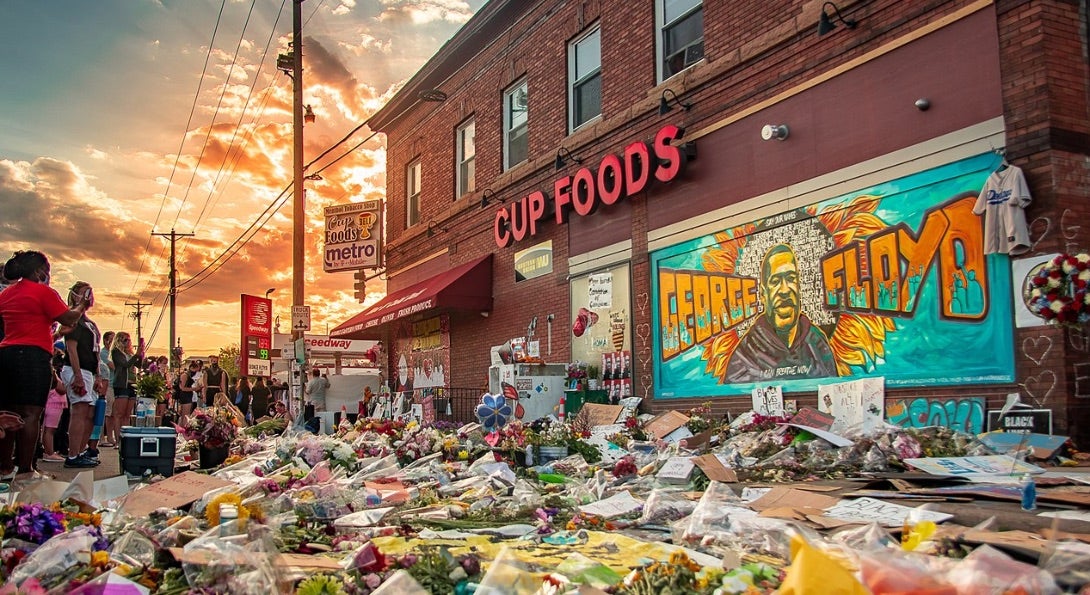George Floyd anniversary: we need to address the role of police

Op-ed text
The second-year anniversary of the murder of George Floyd reminds us that there are people in this country who are at risk of injury and death during interactions with law enforcement personnel, even in the absence of resistance or criminal wrongdoing. Sadly, while the murder of George Floyd catalyzed an important social justice movement, nearly all of the 600 to 1000 people killed by law enforcement each year go unrecognized by the general public. In addition, for every death there are an additional 60 to 80 people requiring medical care in a hospital setting for injuries sustained by law enforcement. Since 2000 in the U.S., nearly 10,000 people have been killed and more than 1.5 million injured by law enforcement.
While there is no dispute that law enforcement remains consistently one of the most hazardous jobs in the United States, state and federal laws have been written to protect officers with a high degree of impunity from criminal prosecution. It continues to be very difficult to hold accountable, in the criminal court system, the officers who wrongfully hurt citizens or the agencies that foster a culture of abuse. For most affected individuals and their families, the only legal recourse is the civil court system or a direct settlement with their local municipality.
These court cases cost local taxpayers billions of dollars over time. In just the past decade, Chicago taxpayers alone have compensated victims approximately $500 million dollars for police misconduct and civil rights violations. These settlements include: false arrests, violations of freedom of speech, illegal search and seizures, illegal detentions, excessive force incidents, failure to provide medical care, and wrongful deaths. Most officers in these cases are allowed to continue their duties even when an officer is involved in multiple cases of abuse of power.
These incidents of perpetual slights, civil rights violations, and violence leaves many communities feeling under siege and dangerously erodes trust in public institutions and law enforcement. In communities most impacted by over-policing, many have lost faith in the institution of law enforcement and view police as merely the end of a hammer swung by the arm of those in power who want to keep undesirables in their place – minority communities, the poor, the homeless, the mentally ill, and other “deviants” (fill in the blank of many other gender, sexual orientation, religious, or other groups).
To initiate real change, we need to prioritize investment in institutions and programs that directly evaluate the broad impacts of modern policing in the United States. This investment needs to occur concurrently with legislative reforms that increase protections of the “people”, prescribe real actionable whistleblowers protections, and establishes accountability of those in the legal system including law enforcement, prosecutors, and judges. The George Floyd Justice in Policing Act of 2021 is a great start to achieving these goals, but it has remained sequestered in the U.S. House of Representatives for more than a year. Too often real reform fails to make substantive progress in the legislative process.
But we also have to change our attitudes as citizens. We must have honest and painful conversations about systemic racism and how police have been used by those in power to disrupt the opposition, quell reform, and perpetuate systems of inequity. History contains numerous examples including slave patrols, the labor movement, the civil rights movements, and violence against LGBTQ. We have been indoctrinated in our society to think that use of force is the only means to protect the safety of the community, and “safety” justifies the violation of civil and human rights (as long as it doesn’t affect us directly). Without a change in attitudes within the broader society and law enforcement about what is the role of police in a truly democratic egalitarian society, legislative reform and building better relations between police and the community will remain in adequate.
SPH's Law Enforcement Epidemiology Project
About the authors
Lee Friedman, PhD, is a an associate professor of environmental and occupational health sciences and co-director of the Law Enforcement Epidemiology Project. His research principally covers three areas: injury prevention at work, violence across the lifespan and the role of conflicts of interest in public health research.
Alfreda Holloway Beth, PhD ’14, MS ’07, is a research assistant professor of environmental and occupational health sciences, co-director of the Law Enforcement Epidemiology Project and the director of epidemiology with the Cook County Department of Public Health. Her research at UIC focuses on surveilling police-caused injury to citizens and occupational injury among police through law enforcement epidemiology.